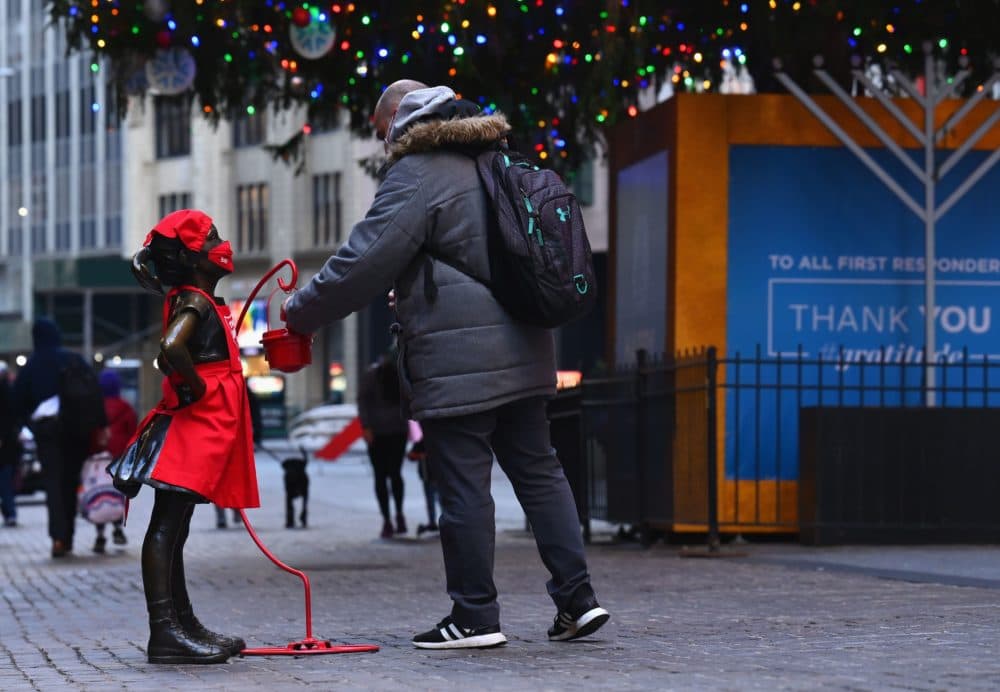Advertisement
A Moral And Practical Imperative: Philanthropic Leader On Need For Coronavirus Aid

As Congress continues to stall on extending federal aid to communities hard hit by the pandemic, nonprofits are stepping up to meet people’s needs.
But many of those charitable groups are struggling, too. From mental health nonprofits to food banks, charities are facing rising demand and struggling to raise money on their own.
Now one philanthropy is rethinking how nonprofits operate in this crisis.
“It's impossible to overstate” how dire the economic situation is in the U.S. right now, says Rip Rapson, president and CEO of The Kresge Foundation, a private philanthropy based in the Detroit area that operates nationally.
“I think if you view it through the lens simply of a pandemic-driven recession, it would be bad enough,” he says. “But I think because it was also accompanied by this massive rupture around racial justice, we are looking at a situation that ... sort of pushes all of our levers of concern and kind of calls on all of our possible uses of institutional capital.”
When the pandemic struck the U.S. earlier this year, private philanthropic institutions in places across the country answered the “clarion call” to support funding for health care, keep child care centers open and help small businesses keep their employees, Rapson says. Even though those efforts were swift and effective, more needs to be done.
“But doing more is hard. We're financially constrained just the way anybody else is,” he says, “and it just involves our digging a little deeper, being a little more thoughtful and realizing that there are some tradeoffs, that we've just got to pull some of our effort forward and into high gear.”
Nonprofits need to shift their focus from short-term giving to addressing long-term needs, Rapson says. Charities can look to Detroit’s experience during the 2008 financial crisis as an example of how to rebalance those broader needs.
“Our private sector had bottomed out, our public sector was being indicted, our nonprofit sector was sort of hanging on by a thread, and philanthropy had to step into the void,” he says. “But over the long term, we had to figure out a different way of sort of cracking these really tough problems and build our way slowly, slowly, slowly back to solvency and health and vitality.”
Advertisement
The public, private and philanthropic sectors need to redefine their roles so that all three can work together to help us get out of the current crisis and prepare for the next one, he says. This is important for future setbacks, so charities don’t have to bear the brunt of the responsibility.
“When we come out the other side of COVID and in however many months it will be, I think our decision making machinery has to look different,” he says. “And we have to figure out a way to sort of stitch those together to create sort of a greater capacity to take on issues that I think are just going to be so weighty and so painful unless we do.”
The federal government also needs to provide critical relief because local governments can’t take on the burden much longer, Rapson says.
“We're talking ultimately about the residents of our communities, and municipal government can only do this for so long,” he says. “It's a moral imperative and it's a practical imperative. This is the only way we're going to move communities forward.”
Editor’s note: The Kresge Foundation is a financial supporter of NPR.
Ashley Locke produced and edited this interview for broadcast with Chris Bentley and Bruce Gellerman. Samantha Raphelson adapted it for the web.
This segment aired on December 15, 2020.

